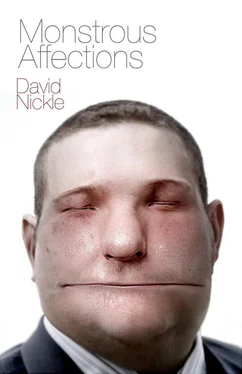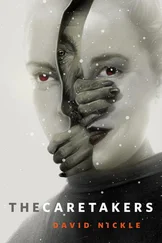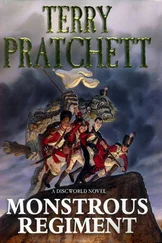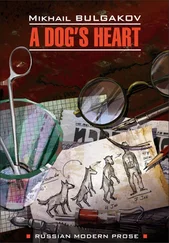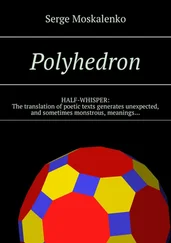David Nickle - Monstrous Affections
Здесь есть возможность читать онлайн «David Nickle - Monstrous Affections» весь текст электронной книги совершенно бесплатно (целиком полную версию без сокращений). В некоторых случаях можно слушать аудио, скачать через торрент в формате fb2 и присутствует краткое содержание. Город: Toronto, Год выпуска: 2009, ISBN: 2009, Издательство: ChiZine Publications, Жанр: Ужасы и Мистика, на английском языке. Описание произведения, (предисловие) а так же отзывы посетителей доступны на портале библиотеки ЛибКат.
- Название:Monstrous Affections
- Автор:
- Издательство:ChiZine Publications
- Жанр:
- Год:2009
- Город:Toronto
- ISBN:978-0-9812978-3-5
- Рейтинг книги:5 / 5. Голосов: 1
-
Избранное:Добавить в избранное
- Отзывы:
-
Ваша оценка:
- 100
- 1
- 2
- 3
- 4
- 5
Monstrous Affections: краткое содержание, описание и аннотация
Предлагаем к чтению аннотацию, описание, краткое содержание или предисловие (зависит от того, что написал сам автор книги «Monstrous Affections»). Если вы не нашли необходимую информацию о книге — напишите в комментариях, мы постараемся отыскать её.
Can it be love?
Monstrous Affections — читать онлайн бесплатно полную книгу (весь текст) целиком
Ниже представлен текст книги, разбитый по страницам. Система сохранения места последней прочитанной страницы, позволяет с удобством читать онлайн бесплатно книгу «Monstrous Affections», без необходимости каждый раз заново искать на чём Вы остановились. Поставьте закладку, и сможете в любой момент перейти на страницу, на которой закончили чтение.
Интервал:
Закладка:
It may as well come out. Because he couldn’t go back to the cage of lies he’d made for himself in Hollywood — to being Captain Kip Blackwell of the Seven Seas — any more than Clarissa the Oracle could go back to the trapeze now that the horror of her own tiny soul was drunk dry, or than Clayton O’Connor could trick the rubes into thinking he were a true strongman, or than Sam Twillicker could live another day once the Cyclops had sucked his soul right from him.
But he would have to take this one step at a time. His mother looked at him with wet, uncomprehending eyes. “ What happened to you? ” she whispered.
“Quite a lot,” said James as Mr. Simmons’ shaking hands closed the lid of his father’s casket, and his sons prepared to lower the old man into the space they’d carved for him in the earth. James felt himself shaking too, around the great, empty space in him where the sawmill had crouched all these years.
“I’ll tell you all of it this afternoon,” he said.
The Webley
Wallace Gleason walked alone that day.
Some days past, he and Rupert Storey had fought a hot, angry storm of a battle that ended in tears and blood. Wallace had come out on top; for at the end, it was he standing, fists clenched at his side, eye-whites standing out like flecks of ivory against his tanned, dusty flesh. His best friend Rupert was on the ground, red ribbons of snot strung down his chin and into the dirt. Rupert bled; Rupert cried. Wallace did neither.
The dog hunkered low in the grass. And it took note of Wallace walking past the quiet, broken-down shacks that every so often emerged from the woods along this stretch of road.
It was a stretch that one time might have had some life to it. When the Evers Brothers sawmill was up and running, the little houses were full of men and their wives and their children, come to Fenlan to make a good wage. A dog would take note of no one boy more than any other. But this was 1933. The passages of boys were few and far between these days.
Wallace thought he took the road slow and victorious, more man now than ever before. But the dog thought differently. It had not seen Wallace’s prowess in the sand pit, what a beating he had been able to inflict upon his foe. The dog only saw the boy, unsmiling, head down, shuffling along the route that he had taken many times in the company of his best friend Rupert.
The dog launched itself.
It was a big boy of a dog, a German shepherd. Maybe some wolf in it. Wallace was not much bigger. When the dog bounded across the overgrown lawn of its house, snarling, barking — Wallace screamed.
The dog reared up on its hind legs, its front paws on Wallace’s shoulders. Their eyes locked. Wallace dropped his grammar textbook. He stepped back and fell, and scrambled up before the dog could set upon him.
The dog gave only a short chase. It bounded after Wallace as he bolted along the dirt road to the crossing where it met the main road into town. There he stopped, barking twice more, as Wallace ran off to his school, alone, his grammar text left fanned open in the road by the dog’s house.
It was only when the boy was out of sight that the dog turned back.
Rupert Storey walked alone too, and had each morning since his ignoble defeat at the hands of his best friend Wallace.
On his own, the trip to school went quicker. Having some brothers meant fewer chores. No longer waiting around at Wallace’s house each morning this past week meant Rupert had arrived at school fully a quarter hour earlier.
Wallace found him, leaned against the tall maple tree at the back of the schoolyard. Rupert was keeping an eye on the Waite sisters, themselves engrossed in a game of hopscotch with some others in the Grade Four section of their class… none half as beautiful as those two: Joan Waite, at twelve, a year older than Rupert — dark hair falling in curls to her shoulders, framing her wide Waite face, cheekbones that came up in the shape of a heart. Nancy, a year Rupert’s junior, somehow born with straw-blonde hair, grown to the middle of her back and braided into a long plait. She had the same upturned nose, though, the same heart-face, the same golden freckles, as her sister.
They all played on, not one noting Rupert’s steady gaze. Rupert turned that gaze on Wallace.
“What?” he said.
“You can come to dinner tonight,” said Wallace.
“Who says I even want to?” said Rupert.
But of course he did want to. Mrs. Gleason put on a fine spread for Wallace, his father the Captain and sister Helen — each night, not just Sundays. Rupert could sit by Helen, he reasoned, and not even talk to Wallace if Wallace didn’t apologize with more than a dinner invitation. So when Wallace asked him if he did want to, Rupert said, “Sure, I guess.” And at the end of day, he waited around until Wallace got out of detention for leaving his grammar text, and the two of them headed back together, on a longer route than usual, to the Gleason farm.
Wallace did say he was sorry but took his sweet time, finally mumbling it as they started up the long drive to the farmhouse. The scope of the apology didn’t exactly cover the sins involved.
“Sorry your lip got cut. I don’t know my own strength sometimes.”
But Rupert figured it for as good as he’d get. “All right,” he said. “It wasn’t bad as that.”
Wallace half-grinned then and almost undid it. “You cried like a little baby,” he said.
But when Rupert pushed him, starting something all over again, Wallace put his hands up. “No fighting today, brother. Today, we got to stick together.”
“All right.” Rupert let his hands dangle at his sides. They trudged up the drive to the house and climbed up on the porch. The Captain was there, sitting on an old cane chair, sipping well-water from a tin ladle. One suspender dangled off his shoulder; his white shirt was stained with sweat, which beaded on his sunburned forehead. Seeing Rupert, he lifted the ladle to him as if in a toast.
“Good afternoon, Captain Gleason,” said Rupert.
“Afternoon, Lieutenant Storey. Corporal Gleason.” The Captain winked and finished the ladle of water. He dipped it into the bucket beside his chair and offered it to the boys. It had been a hot walk; Wallace took it and gulped down half of it, and Rupert grabbed it away and finished it.
“Can Rupert stay for supper?” asked Wallace when they handed the ladle back.
“Can Rupert stay for supper? I don’t know. Depends on whether our Helen’s up to fending off the attentions of her young suitor tonight.”
Wallace glared, Rupert blushed, and the Captain laughed. “You’re always welcome at our table, Rupert.” He sniffed the air and said to Wallace: “Your mother’s roasting pork tonight. With apple. Ought to be plenty.” Then back to Rupert: “Go on inside. Say hello to Mrs. Gleason. Keep your hands to yourself with my daughter. Think you can say Grace?”
“Yes, sir.”
“I think so too. Now scoot.”
They went inside and through the sitting room. Rupert always liked spending time here. Captain Gleason had become a captain serving with the Perth County Fusiliers in the Great War. It was a rare ascent, so said the Captain, to go from enlisted man to officer in the course of a war. For the Gleason farm, it brought prizes: a decommissioned German Maxim gun, mounted in the corner; and a helmet from a Hun, a bullet hole in it right at the crown, hung on the wall beside family photographs. By the west-facing window perched a small metal sculpture of an angel, polished black, which Rupert and Wallace understood had been lifted from the bombed-out ruins of a French church, brought back as hidden booty in a soldier’s duffel.
Rupert went through there to the kitchen, where he found Mrs. Gleason and Helen, tending supper on the woodstove. Helen was a woman of fifteen — black hair cut to her shoulders — a small mouth with full red lips — brown eyes that laughed…
Читать дальшеИнтервал:
Закладка:
Похожие книги на «Monstrous Affections»
Представляем Вашему вниманию похожие книги на «Monstrous Affections» списком для выбора. Мы отобрали схожую по названию и смыслу литературу в надежде предоставить читателям больше вариантов отыскать новые, интересные, ещё непрочитанные произведения.
Обсуждение, отзывы о книге «Monstrous Affections» и просто собственные мнения читателей. Оставьте ваши комментарии, напишите, что Вы думаете о произведении, его смысле или главных героях. Укажите что конкретно понравилось, а что нет, и почему Вы так считаете.
